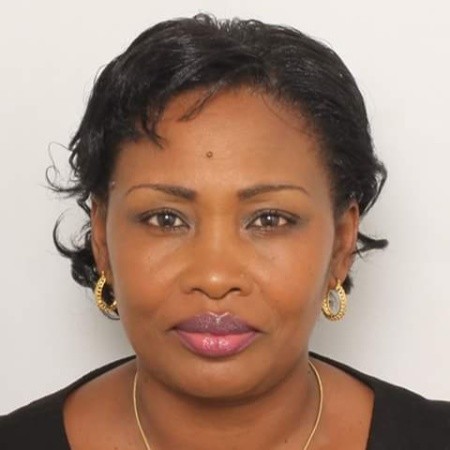
By Anthony John
In the vibrant coastal city of Tanga, Elizabeth Swai, a visionary entrepreneur and Director of AKM Glitters, is leading a transformative movement, not through loud proclamations, but with deliberate and impactful action. The TangaYetu Youth Poultry Project, which she skillfully spearheaded during Phase 1 of the TangaYetu Initiative, is profoundly reshaping young lives and empowering a new generation with sustainable skills and tangible economic opportunities.
“Empowerment goes beyond mere training; it’s about instilling confidence and a deep sense of ownership,” explains Elizabeth, highlighting her core philosophy. The project, initiated by her company, AKM Glitters, actively involved 50 youths (with 47 currently active, as 3 have transitioned), comprehensively equipping them with the essential knowledge to establish and confidently run poultry businesses from the ground up. The program extends far beyond basic poultry management, meticulously teaching participants how to effectively run a complete business, make informed and strategic decisions, and sustainably grow their ventures for long-term success. Its impact has been profound and far-reaching, with over 40 youths starting their own independent projects and actively supporting others. To date, the impressive multiplier effect of this initiative has directly benefited more than 200 young people.
For many participants, the program has been truly life-changing. The financial implications of the project are profound and far-reaching, demonstrating immediate and significant economic upliftment. Each engaged group has consistently generated impressive profits that allow them to confidently reinvest and strategically expand their operations. “We’re talking about substantial earnings—our groups collectively make approximately 30 million TZS in profits,” Swai shares with a justifiable sense of pride.
Beyond direct income generation, the project actively fosters a powerful sense of community and collaborative spirit. By strategically connecting participants with peers from established poultry regions like Kilimanjaro and Lindi, it has significantly broadened their networks and enriched their understanding of dynamic market demands and supply chains. “This network isn’t just for trade; it’s a living, breathing web of invaluable support, continuous learning, and shared, collective growth,” Swai emphasizes, underscoring the intangible benefits.
Facing Challenges Head-On
Despite its undeniable successes, the journey has not been without its challenges. Limited resources initially constrained the project’s desired scope and scale, and fluctuating market demands periodically tested its operational stability. In addition, ensuring consistently high-quality training and retaining skilled personnel, particularly in more remote project areas, presented profound and persistent hurdles.
“Every challenge we encountered became an invaluable lesson. For instance, fluctuating market prices taught us the critical importance of having a flexible business model and robust contingency plans in place,” Swai reflects thoughtfully, highlighting the project’s adaptive learning.
Lessons Learned and the Road Ahead
From these challenges, invaluable lessons have robustly emerged. “Community engagement proved to be absolutely crucial. It fundamentally transformed passive beneficiaries into active, committed contributors, thereby making the project significantly more resilient and inherently adaptable to evolving local needs,” Swai explains, emphasizing the power of grassroots involvement.
The demonstrated sustainability of the project is a clear indication of its commitment to continuous training and its inherent ability to adapt effectively to rapid technological advancements and dynamic market changes. “Our adaptability has been a key factor in maintaining the project’s relevance and overall effectiveness,” Swai adds, pointing to its built-in resilience.
Looking ahead, Swai envisions the project expanding its reach far beyond Tanga, aiming to empower youth in other parts of Tanzania and potentially across the broader African continent. “Imagine a powerful network of young agribusiness leaders, fully equipped to transform their communities and strategically influence global markets,” she dreams aloud, painting a picture of vast future potential.
A Vision for Global Impact
Swai’s aspirations extend ambitiously beyond national borders. She is resolutely determined to position Tanzania prominently on the global map as a major, reputable poultry exporter. “I envision a future where Tanzanian poultry is renowned worldwide for its quality, attracting significant international capital, cutting-edge technology, and invaluable expertise through strategic international partnerships,” she states confidently, outlining her bold vision.
This ambitious vision is firmly rooted in the strong and successful foundation meticulously laid by the TangaYetu Youth Poultry Project. It has clearly demonstrated that with the precise combination of targeted training, strategic investment, and deep-seated community engagement, achieving substantial global impacts is not merely a dream, but a tangible possibility.
